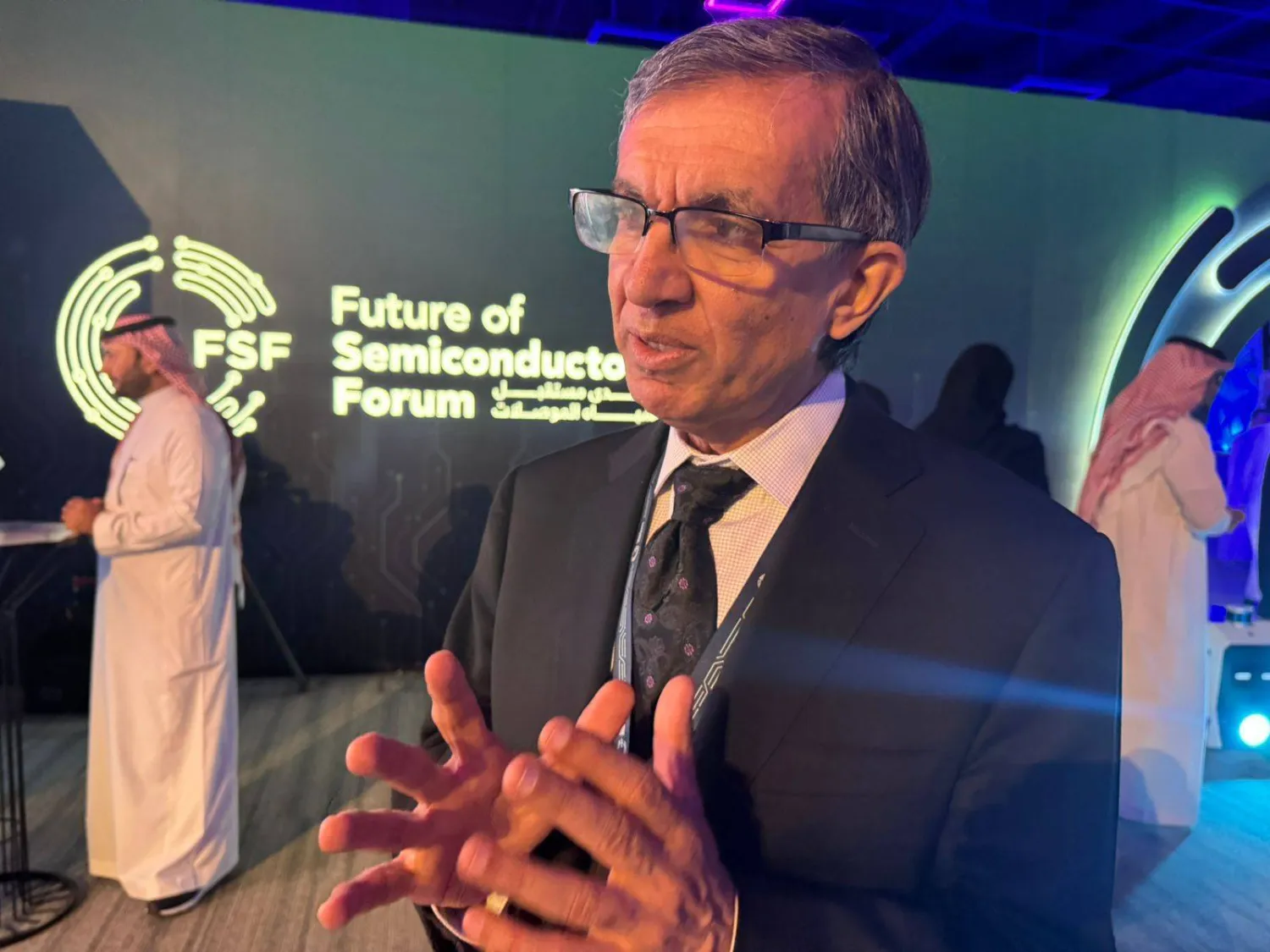Saudi Arabia has launched a billion-riyal ($266.6 million) investment fund for the semiconductor industry, alongside a national center. This initiative aims to support the establishment of 50 design companies and train 5,000 engineers by 2030.
Announced during the “Semiconductor Forum 2024,” which was held on June 5-6, the National Semiconductor Hub aims to secure over 150 million riyals ($40 million) from the National Information Technology Development Program and attract 25 global experts through a special residency program.
With this initiative, Saudi Arabia aims to become a global center for semiconductor markets, leveraging its strategic location.
Naveed Sherwani, CEO of Rapid Silicon, highlighted to Asharq Al-Awsat the kingdom’s advantage in accessibility, allowing businesses to connect with countries like Taiwan and Korea, accessing diverse markets.
Sherwani stressed the importance of semiconductor design firms, essential for various sectors like smartphones, tablets, automobiles, healthcare, and education.
He emphasized semiconductors’ role in enhancing national sovereignty, stating that the hub’s launch aims to meet Saudi Arabia’s sovereignty needs, showcasing the Kingdom’s high competitiveness in this field.
As for the Semiconductor Forum 2024, officials stressed its importance in gathering decision-makers, industry leaders, experts, and researchers in semiconductor technologies.
It aligns with the Kingdom’s goals in digital economy, artificial intelligence, and technology localization.
Saeed Al-Shahri, Deputy President of King Abdulaziz City for Science and Technology (KACST) for the Energy and Industry sector, told Asharq Al-Awsat that the forum aims to bring together experts, scientists, and decision-makers to discuss and localize these technologies in the Kingdom.
Saudi Arabia aims to have 500,000 electric cars by 2030, with about 40% relying on electronic chips or semiconductors.
Al-Shahri mentioned that the Kingdom has targets in the realms of digital economy, artificial intelligence, Internet of Things, and smart cities, all requiring an electronic chip industry.
Saudi Arabia Launches $266 Mln Investment Fund for Semiconductor Development

CEO of Rapid Silicon Naveed Sherwani (Asharq Al-Awsat)

Saudi Arabia Launches $266 Mln Investment Fund for Semiconductor Development

CEO of Rapid Silicon Naveed Sherwani (Asharq Al-Awsat)
لم تشترك بعد
انشئ حساباً خاصاً بك لتحصل على أخبار مخصصة لك ولتتمتع بخاصية حفظ المقالات وتتلقى نشراتنا البريدية المتنوعة







